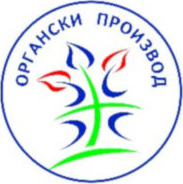
This is a brief, summarized overview of certification information. For complete and detailed information, please visit the official website of the standard.
Keeping records
Labeling
Whole farm approach and parallel production
Agricultural research center
Conversion period
Biodiversity
Social requirements
Water resource
Nanomaterial
PVC
Means of Transport
Standards cost and additional fees
Risk plan
Percentage of Legumes
Use of non-organic reproductive material
Peat
List of permissible agents
Nitrogen
Phosphorus
Potasium
Sulphur
Copper
Pyretrum
Pyretroids
Spinosad
Microelements (Traces elements)
Lime
Serbian Organic
This certification verifies that the product has been produced in compliance with the Republic of Serbia’s Law on Organic production.
Serbian Law on Organic production („Official gazette RS”, No. 30/10) Rulebook on inspection and certification in organic production („Official gazette RS”, No. 95/20 i 24/21 )EU Organic
The EU organic certification confirms that the product has been manufactured and certified in line with EU regulations.
Regulation (EU) 2018/848 Regulation (EU) 2021/1165Bio Suisse Organic
Bio Suisse is a private organic certification with stricter requirements in certain areas (e.g., biodiversity) and is used for the sale of organic products in Switzerland.
Bio Suisse Standards 2024Naturland
Naturland is an international association for organic farming from Germany, their standard guarantees to consumers that products meet the strict ecological and social requirements.
Naturland Standard on Production
